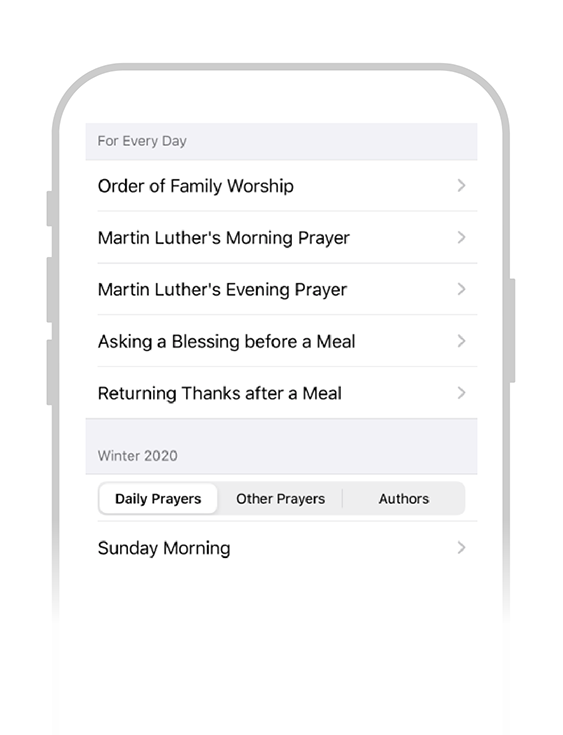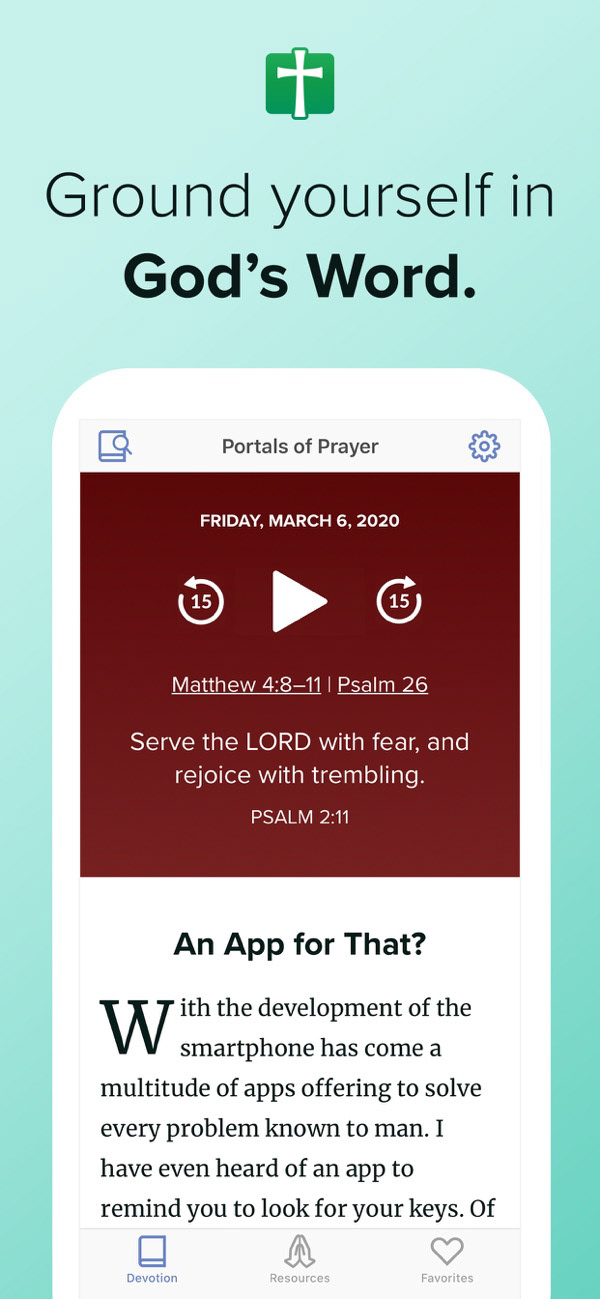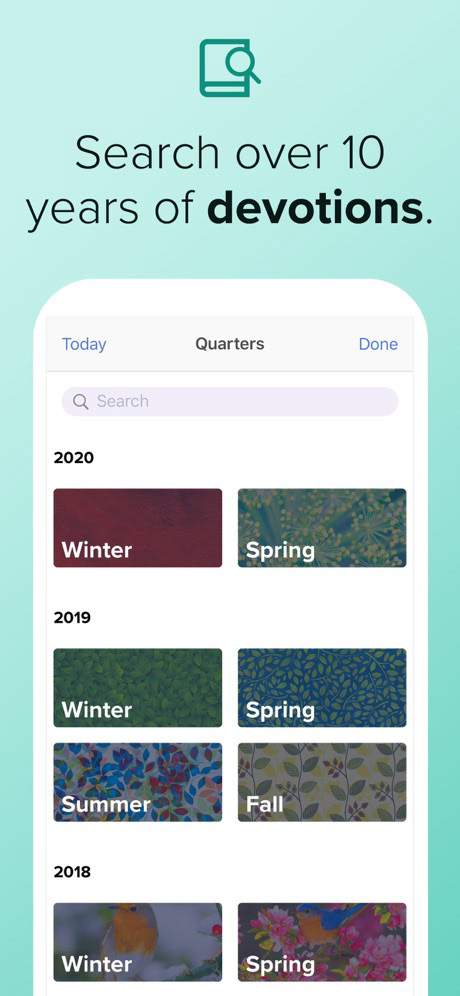The Problem
70% of Portals of Prayer app users use the app only to read devotions, but the app wasn't not been updated since its initial launch in 2016. Content available in the print version–including specific prayers and author biographies–is difficult for users to find. There’s also an opportunity to improve accessibility. In addition, negative reviews and lack of awareness are sending potential users to other devotion apps, and they are missing out on POP's quality, doctrinally reviewed content.
Solution
Strategy
To identify any UX weaknesses, I started with a heuristic review of the app. I also evaluated the Voice of the Customer feedback, survey results, reviews, and support tickets.
I learned that users would like to easily access author bios and prayers. Features such as dark mode were requested, and this prompted an internal assessment of the overall accessibility of the app.
Stakeholders, developers, and I reviewed the research to prioritize our updates.











